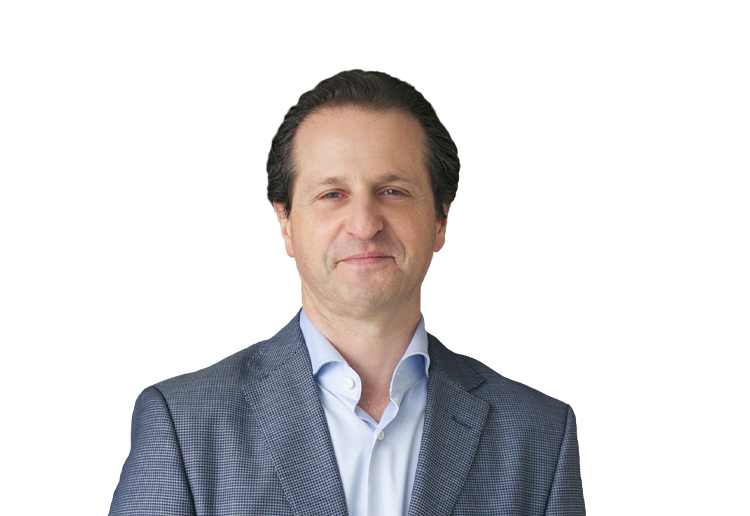
Peter Durlach grew up around computers and was exposed to innovative technology at an early age by his father, who helped run a lab in the electronics department at MIT. After graduating college in the 1980s, Peter caught the entrepreneurial bug way before it was cool, and was employee number four at a company developing the first voice user interface for the Macintosh.
Peter’s work put him at the center of bringing voice recognition and artificial intelligence (AI) to healthcare – work he continues today as EVP and Chief Strategy officer at Nuance Communications, a Microsoft Company.
At Articulate Systems, the first voice recognition company Peter helped build, he and his team eventually recognized that 60% of their user base was physicians dictating medical notes. He helped pivot the company to focus exclusively on healthcare and build the technology that became PowerScribe, a solution still used by most radiologist today.
Through acquisitions, Articulate Systems eventually became Nuance. After some time away from the company as a software consultant and running an AI-powered contact center business he sold to Microsoft, Peter was recruited back to Nuance in 2006 to create its healthcare division. By 2019, Nuance was focused on the healthcare and customer engagement market, and in 2022 was acquired by Microsoft for $20 billion.
In this episode of Healthcare is Hard, Keith Figlioli builds on earlier conversations with guests like Mayo’s John Halamka and Advocate’s Rasu Shrestha to unpack the hype around AI in healthcare and understand what’s real right now, and what will be in the future. Some of the issue Keith and Peter discussed include:
- The AI adoption curve. Peter described the different adoption curves he sees for different use cases of AI in healthcare. He talks about how adoption of administrative use cases will happen much faster than clinical applications, and the factors that will influence adoption curves – from performance requirements to governance and patient safety.
- Use cases that matter. Nuance and Microsoft see one common theme for the application of AI in healthcare – that it should be a copilot and not an autopilot. In the near term, the major focus will be on automating administrative tasks in revenue cycle, payment integrity, documentation or other areas where there is a large labor expense. While automation may be able to accomplish 30% of the work in some areas, and 70% or more in others, the goal is reducing labor while maintaining human oversight. The bar is much higher for clinical use cases, but the same rules apply.
- Opportunities for startups. Peter shares lessons from his time at startups and the world’s largest technology companies. He talks about how incumbents have an unfair advantage and a “right to win” because of their footprint with trusted clients, and how speed and nimbleness give startups an advantage. He says startups focusing on AI need to understand if they’re supercharging an existing process, or creating a truly new paradigm, because understanding this will dictate their path to success.
- Governance – Peter talks about the governance and regulatory issues impacting AI adoption and the potential for certifying technology for specific uses, similar to what’s required for pharmaceuticals or software as a medical device. He also discussed how Microsoft is building safeguards within its cloud infrastructure, allowing the ecosystem to stay focused on innovation.
To hear Keith and Peter talk about these topics and more, listen to this episode of Healthcare is Hard: A Podcast for Insiders.
